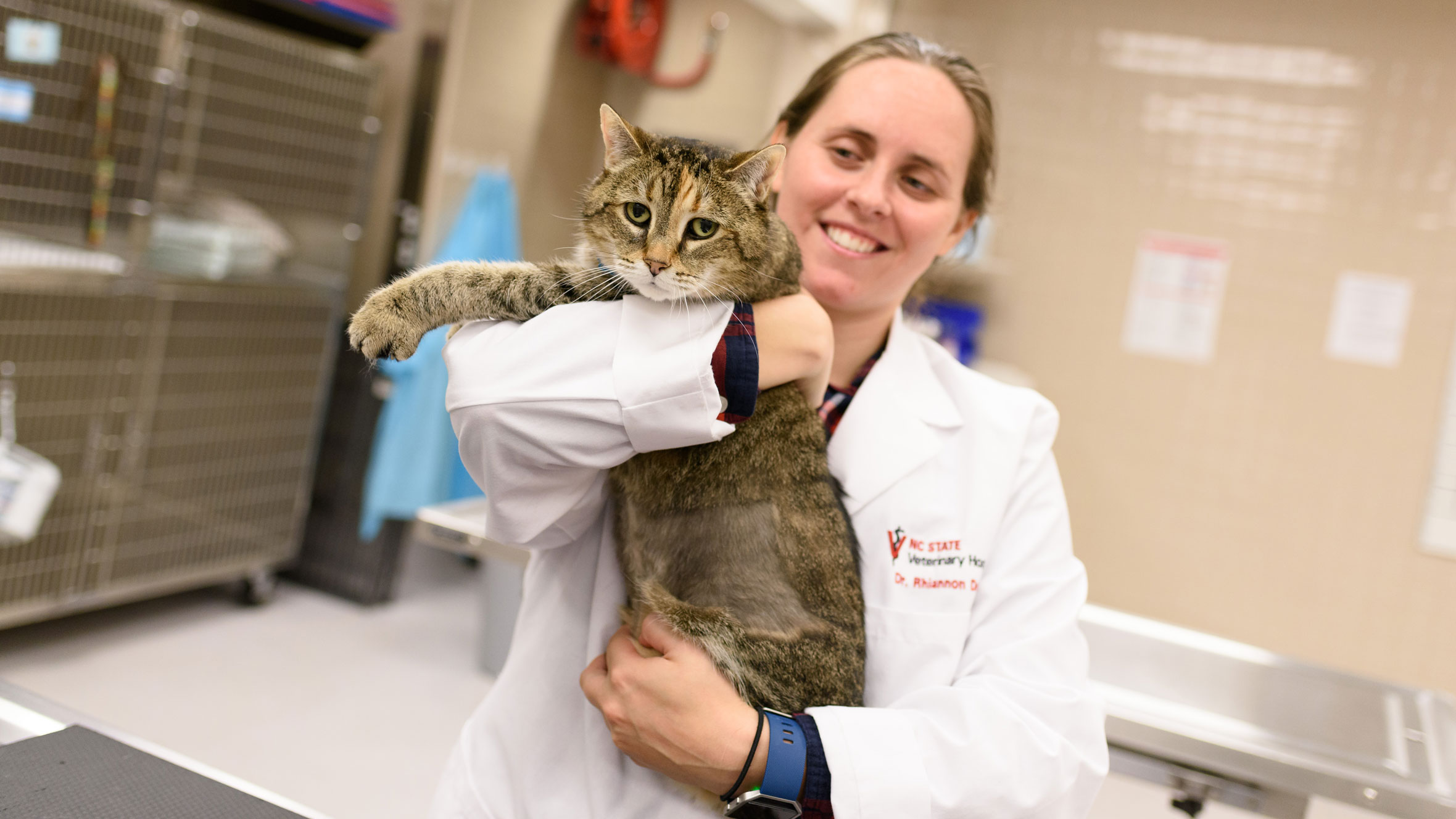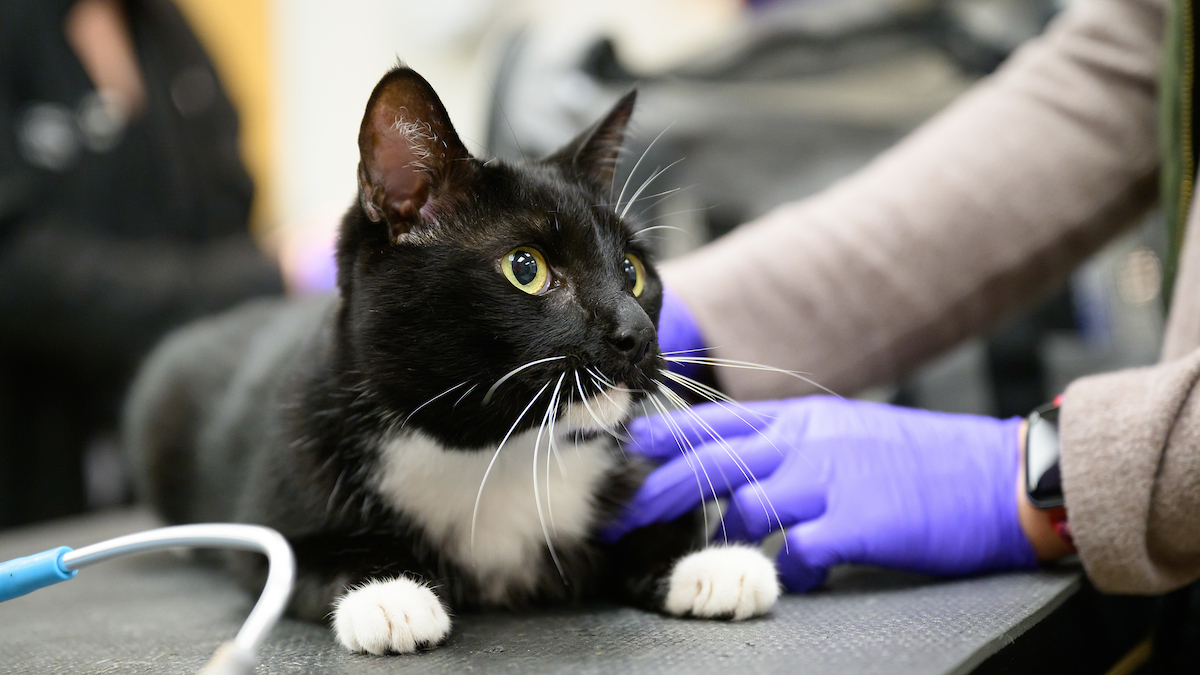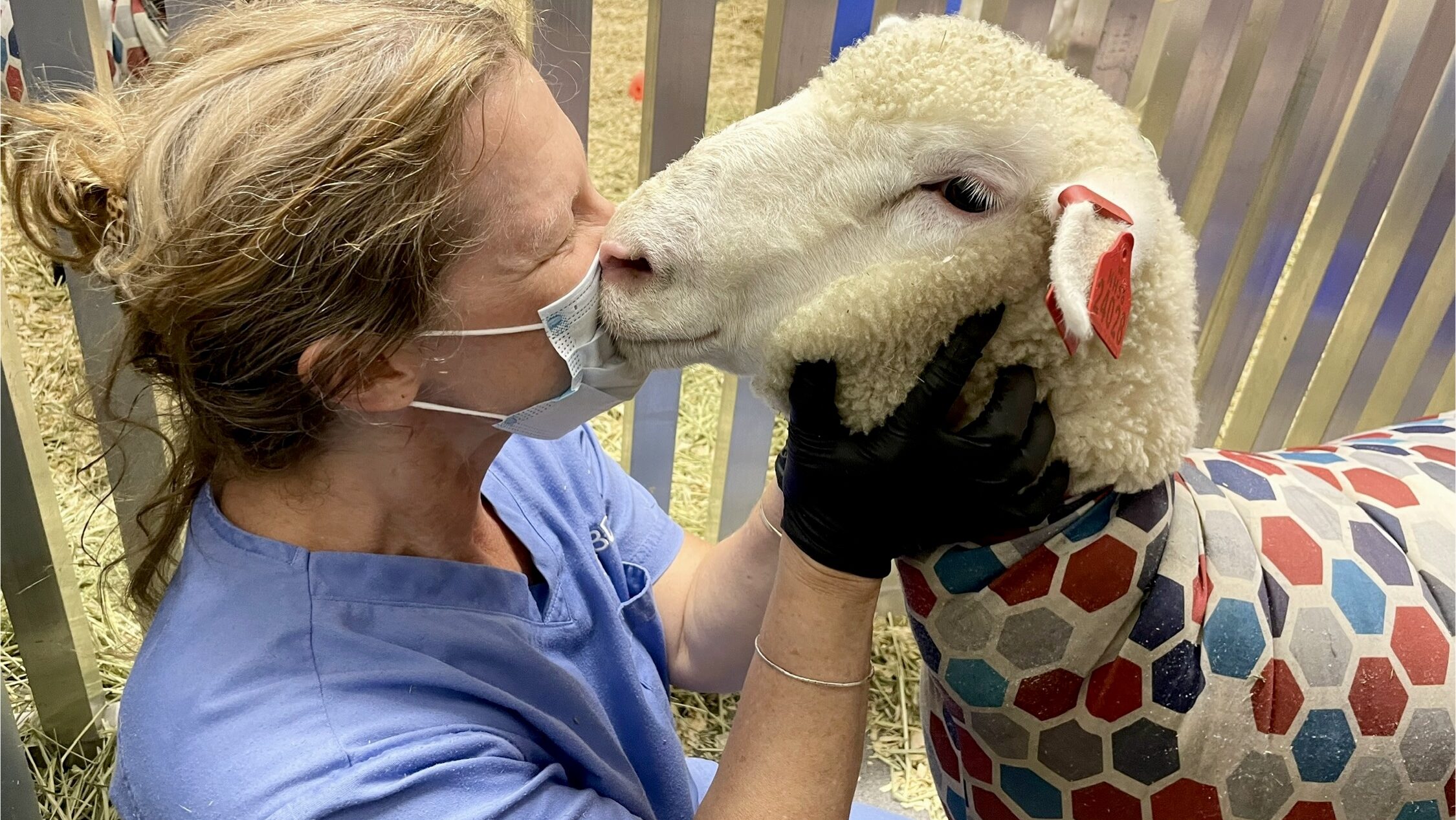Cat With Rare Cancer Gets a Helping Hand

With a love for attention and overflowing with affection, Bernice the cat took to her new family — and even strangers — immediately after being adopted at the age of 4.
But soon, the domestic shorthair would become something of a medical puzzle, eventually decoded by the skilled clinicians at the NC State Veterinary Hospital.
It began with the results of a blood test. Bernice’s owners, Alissa Hendershot and Justin Carrasco of Durham, took their 12-year-old cat to their local vet for a check-up, which revealed slightly elevated globulin levels — abnormal, but not too alarming.
Subsequent examinations and tests with Bernice’s primary care veterinarian didn’t help solve the mystery. Bernice’s globulin level remained elevated and she had persistent weight loss. With the possibility of a more serious medical condition now considered likely, Bernice was referred to the NC State Veterinary Hospital.
The initial referral sent Bernice to the hospital’s internal medicine service in April. More diagnostic tests were performed, designed to determine if Bernice may have an infectious disease. Samples of cells from her liver and spleen were drawn to look for the cause of the elevated globulins, but again the results were not definitive.
But the tests did reveal something important — rare atypical round cells that could be cancerous.
In Bernice’s scenario, lymphoma and plasma cell tumors are the most common causes of elevated globulin levels. Both are cancers of lymphocytes, a type of white blood cell. In lymphoma, the cancerous cells are less mature than those in plasma cell tumors.
In June, Bernice was referred to the hospital’s oncology service. Additional testing was needed, said oncology resident Rhiannon Doka. Doka said Bernice’s liver and spleen were tested again and her results were most consistent with plasma cell neoplasia. Chemotherapy soon followed.
Bernice’s condition is quite rare for cats. The NC State oncology team told Bernice’s owners that they see it three or four times a year. Faced with an extended treatment regimen, Bernice’s owners were looking at the prospect of mounting medical expenses for their companion.
Fortunately, a generous grant from the Petco Foundation to the NC State College of Veterinary Medicine was available. The Petco Foundation helps pets by defraying the cost of treating rare cancers and therefore helps medical professionals research innovative and effective therapies for conditions not often seen.
So far, several months in, Bernice is in remission. The prospects are good for Bernice to have a better and longer life.
“We’re happy to have as much time as we can get with Bernice,” Carrasco said, “and we are extremely grateful that this program exists.”
~Steve Volstad/NC State Veterinary Medicine
- Categories:


